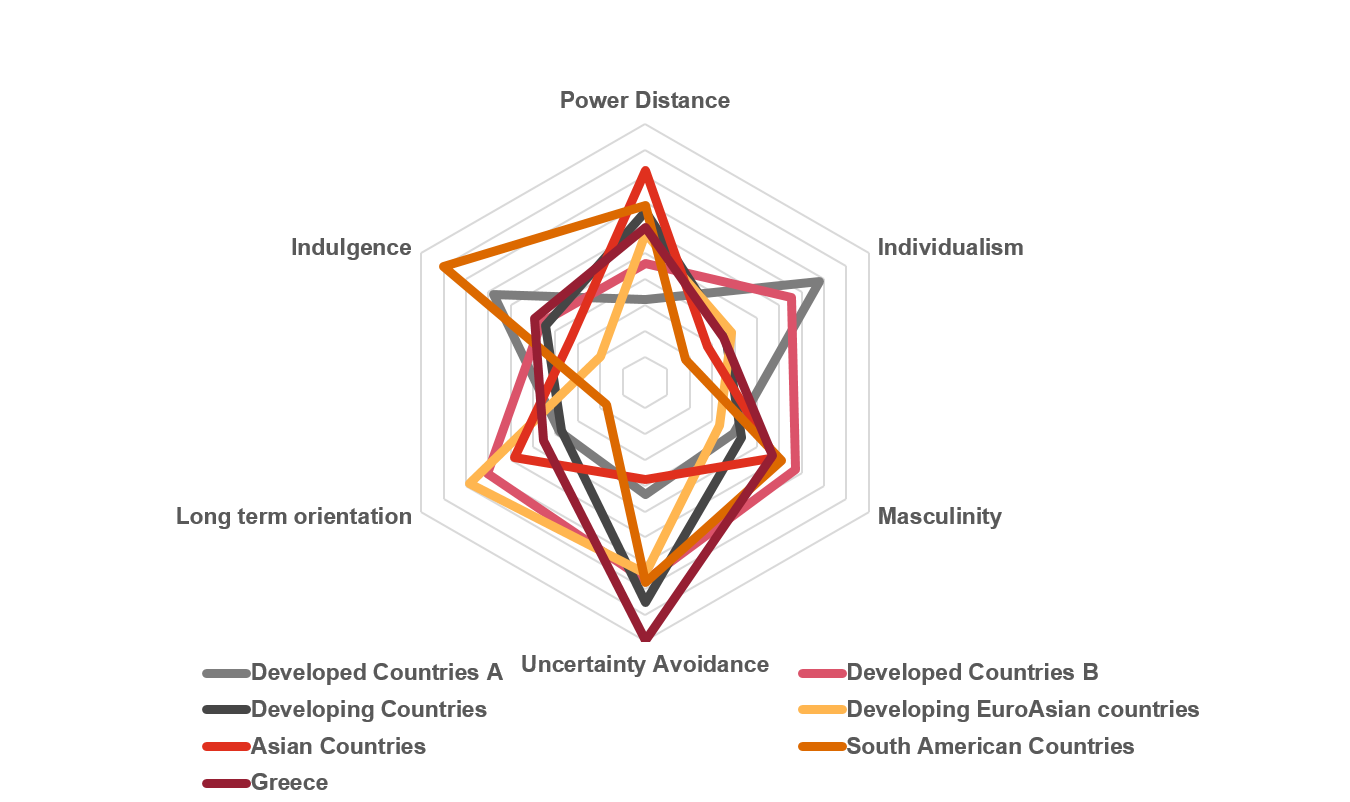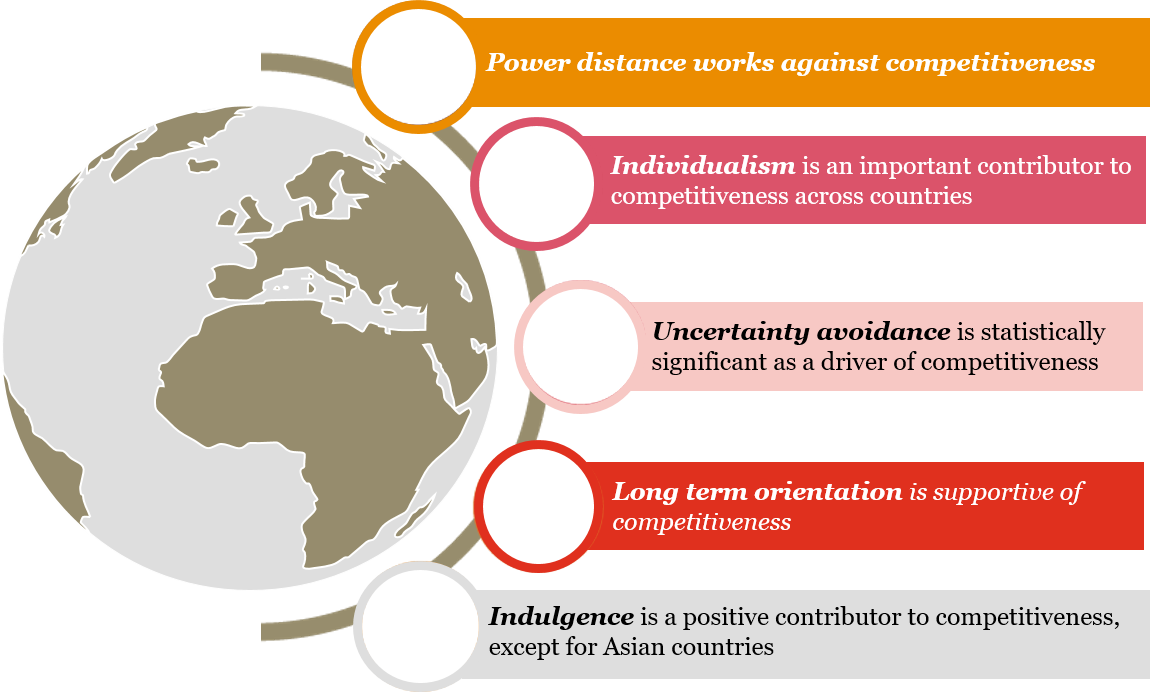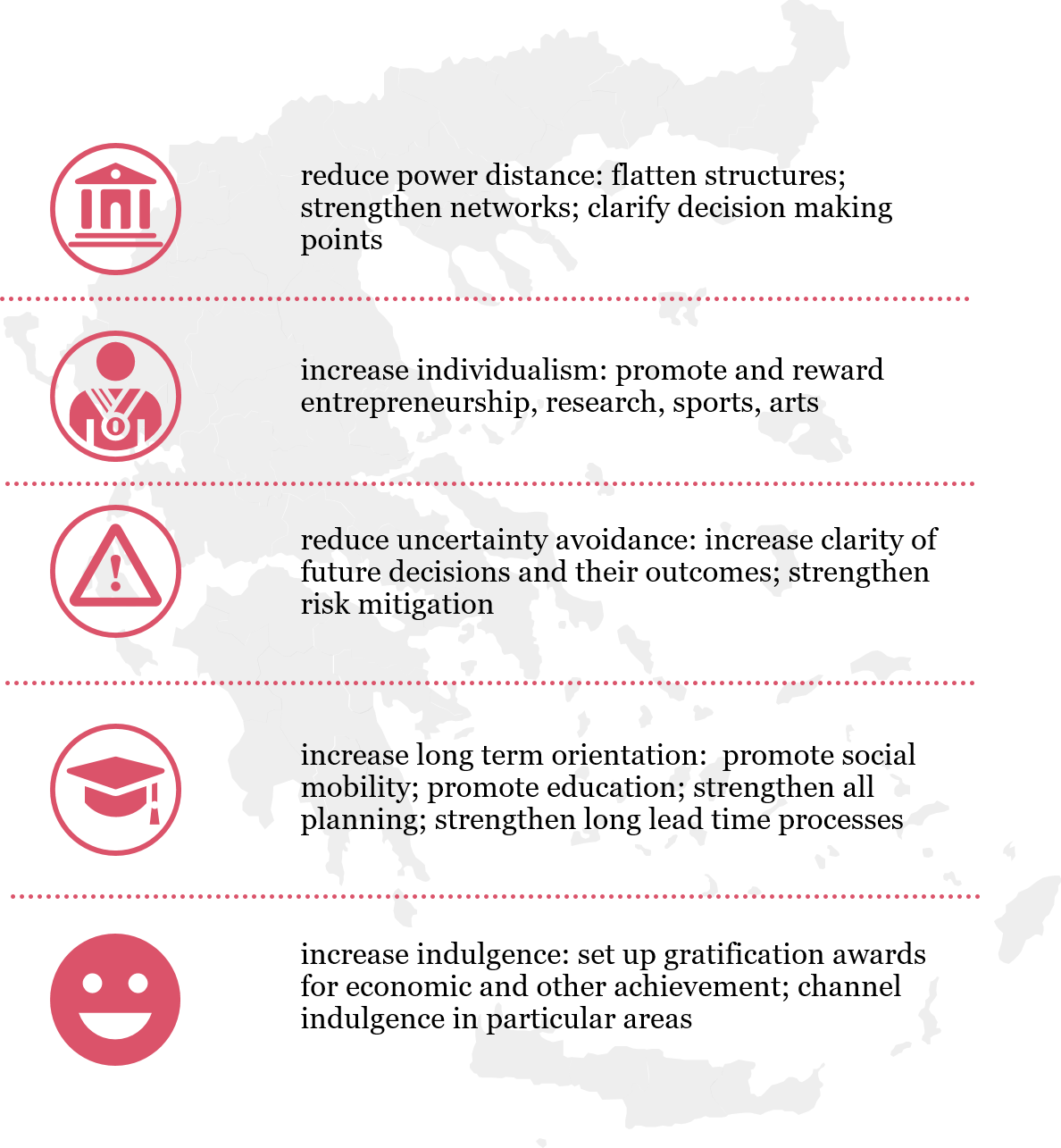Culture is defined as the collective mental programming of the human mind which distinguishes one group of people from another.
The essence of national culture
In 1980, Geert Hofstede, first articulated the theory that national culture can be described along six dimensions:

Cultural affinities

Countries “naturally” group together in terms of cultural dimensions:
Culture precursor to competitiveness
Statistically, all cultural dimensions, but masculinity, have an impact as competitiveness:

Where does Greece stand?

Greece has more wealth than its relative competitiveness position would warrant and belong to a group of wealthy countries characteristics by a fairly uniform “developing” culture. It has a moderate score in most of the cultural dimensions, but has the sample’s highest score in uncertainty avoidance. It also shows some distinct differences in long term orientation, individualism and recognition of power from a developed country culture.
Greece has ample space to raise its competitiveness within the current cultural envelope. Taking a longer term the perspective cultural shift towards the developed countries will not lead to significant improvements in competitiveness. On the other hand, if Greece fails to focus on enhancing its cultural drivers, it may drift to a cultural mix consistent with a lower competitiveness profile and commensurably lower wealth.
Policies
The competitiveness enhancement policies for Greece fall into five broad categories:









